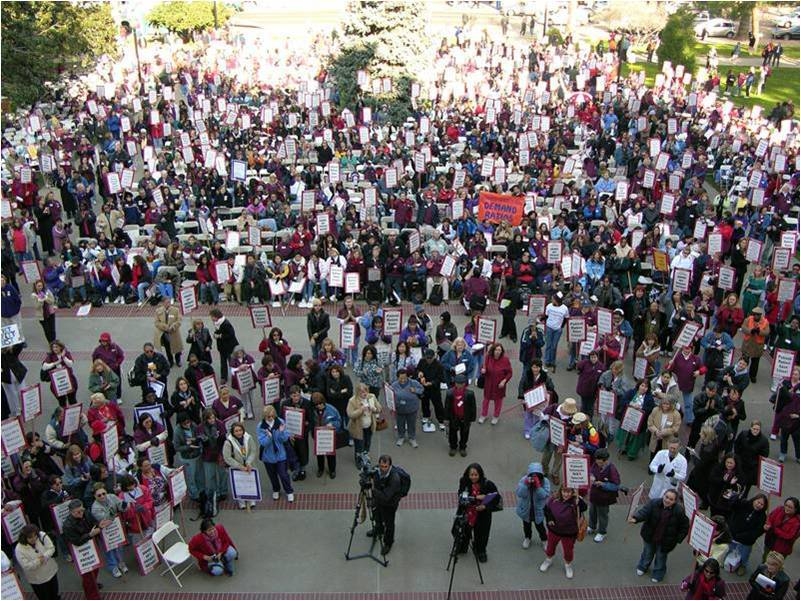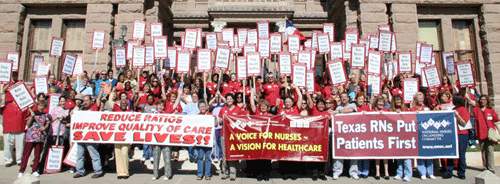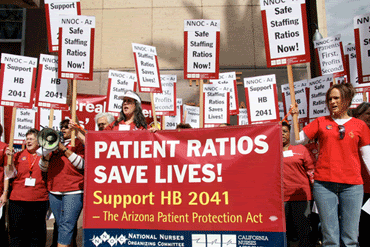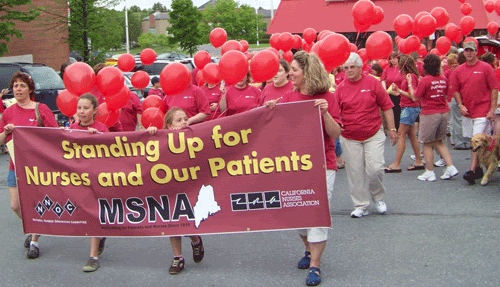Patients with heart trouble would be wise to seek care at a hospital with a nurses union according to a recent study of the impact of nurses unions and the mortality rate for patients with acute myocardial infarction (AMI, the medical terminology for heart attack). The study, which was published in the March issue of JONA (Journal of Nursing Administration), studied hospitals in California and found that hospitals with a nurse’s union had a "significantly predicted lower risk-adjusted AMI mortality."
The study’s authors, Jean Ann Seago, PhD, RN and Michael Ash, PhD, concluded that "this study demonstrates that there is a positive relationship between patient outcomes and RN unions." Editor’s Note: for a fax copy of the study, contact the MNA at 781.249.0430
"Thirty-five percent of hospitals in California have RN unions. The significant finding in this study is that hospitals in California with RN unions have 5.7% lower mortality rates for AMI after accounting for patient age, gender, type of MI, chronic diseases and several organizational characteristics. This result includes controls for number of beds, AMI-related discharges, cardiac services, staff hours and wages.
In discussing how unions impact the quality of patient care, the authors stated, "unions may impact the quality of care by negotiating increased staffing levels…that improve patient outcomes. Alternatively, unions may affect the organization nursing staff or the way nursing care is delivered in a fashion that facilitates RN-MD communication. This is the ‘voice’ function of unions…Yet another possible mechanism by which unions can improve care is by raising wages, thereby decreasing turnover, which may improve patient care."
The authors conclude, "perhaps having an RN union promotes stability in staff, autonomy, collaboration with MDs and practice decisions that have been described as having a positive influence on the work environment and on the patient outcomes."
"We at the MNA couldn’t have said it better ourselves,’ said Karen Higgins, RN, MNA President. "In fact, we have been saying this for years - a patient’s greatest advocate is a unionized nurse, because a unionized nurse has the protected right and the power to stand up for their practice and their profession. The fact that this same message is being delivered through a research study published in a journal for nursing administrators is even more telling. These are the folks who often fight tooth and nail to prevent nurses from forming a union. Perhaps now they will see the value of having a union at their facility. We know the staff nurses here in Massachusetts have seen the value."...





Woodenpug, BSN
734 Posts
But the burden is on this thread. By the title. I also simply stated that if these articles exist, as you seem to report, I can find them, if they are peer reviewed.
The discussion is I think "do union organizations have improved staffing ratios and rn retention rates as compared to non-union organizations." My point is simpler, not enough evidence exists to support the conclusion that unions are good for nursing and good for patients.